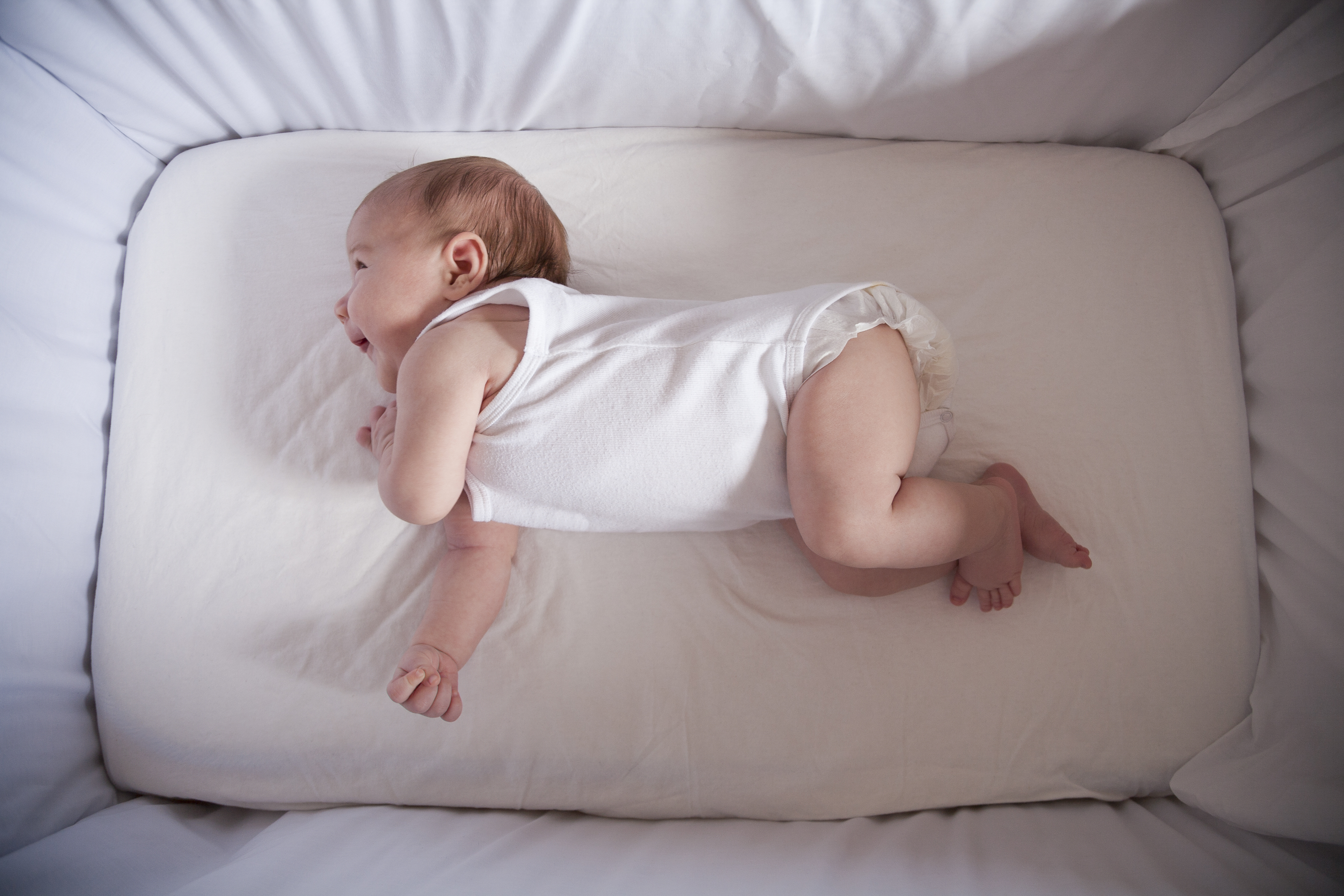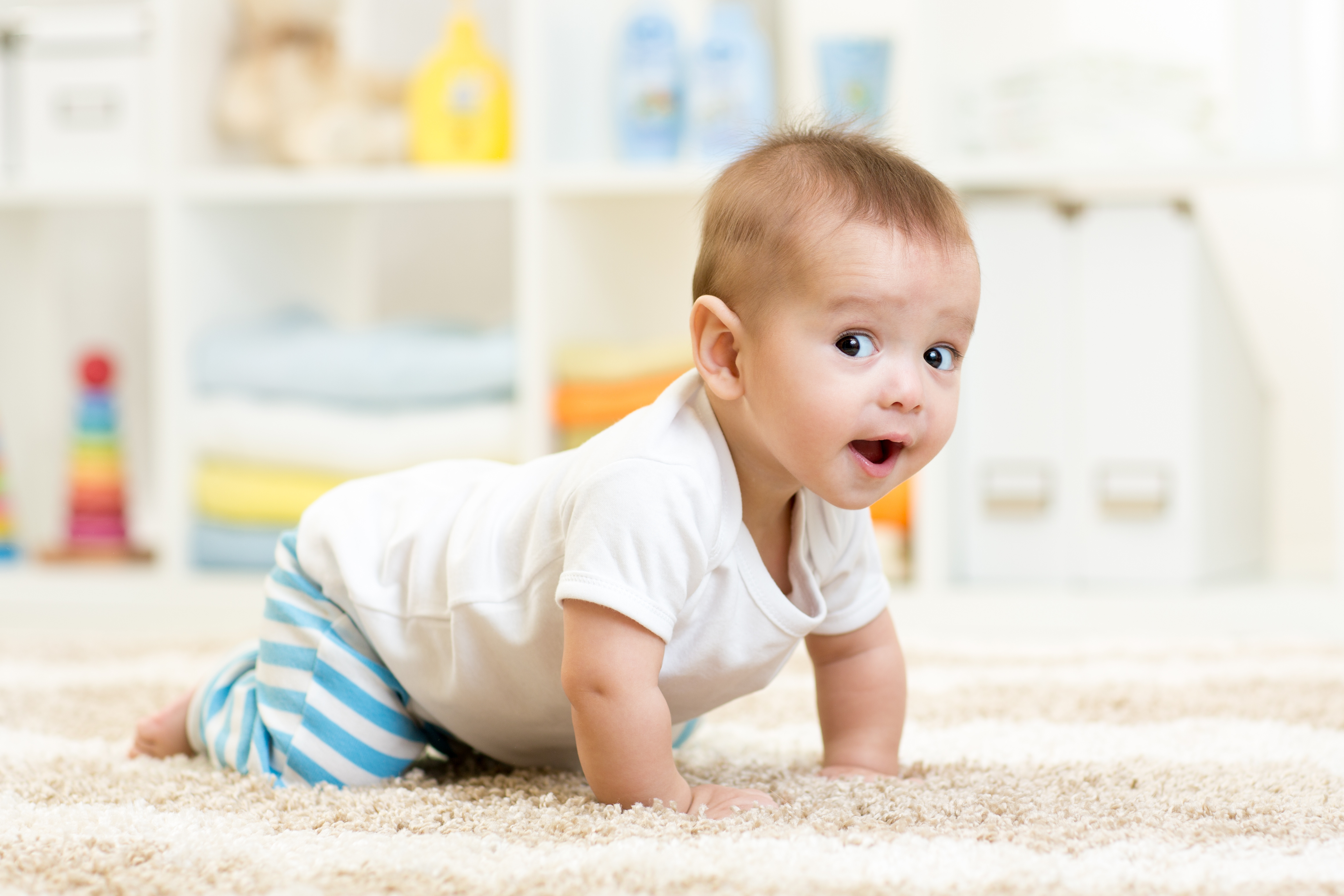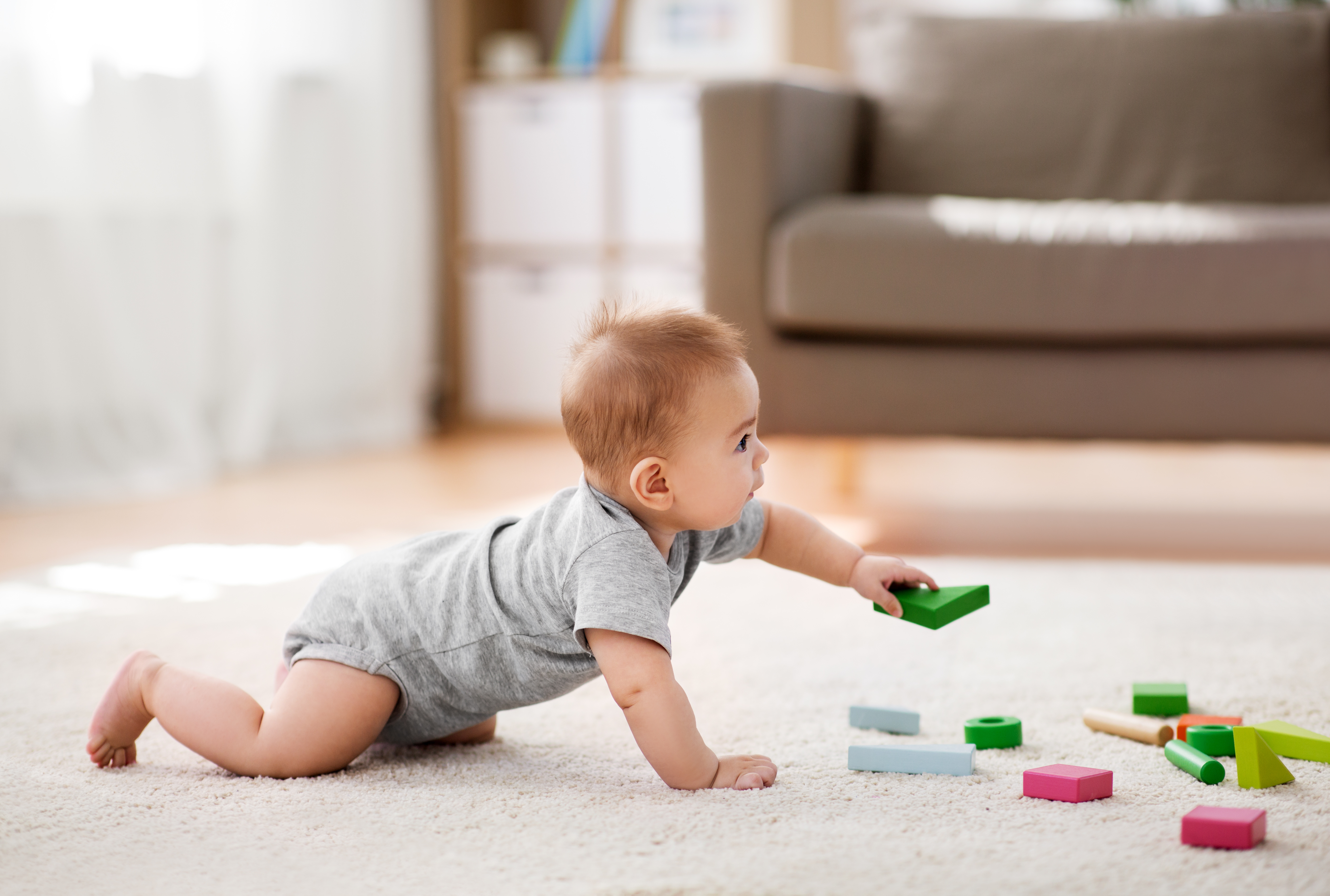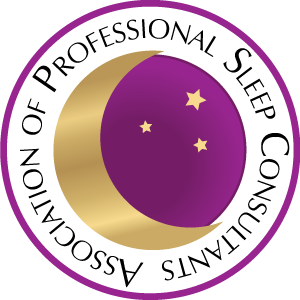Let’s talk Developmental Milestones Vs Sleep
Who wins?
Chances are it’s not going to be us!
As a mother, as well as a sleep consultant, I’ve come to the inescapable conclusion that babies are complicated creatures.
If you’re the parent of a baby who’s learning to crawl, or who’s teething, or just figured out how to roll over, this will come as no surprise to you…
Developmental milestones are likely to cause disruptions in a baby’s sleep.
In a 2015 study published in Monographs of the Society for Research in Child Development, researchers looked at the sleep patterns around crawling. They looked at before they started crawling, while they were learning to crawl, and a few months after learning to crawl.
The results stated:
“Along with the overall improvement in sleep consolidation, periods of increased long wake episodes were also manifested; the rise in sleep disruption was temporarily linked to crawling onset.
The results of the study highlight the dynamic interrelations between domains of development, indicate that emerging motor skills may involve periods of disrupted sleep, and point to the moderating effect of age.”
So, basically!
Babies appear to have more nighttime wake-ups around the time that they are learning to crawl.
 To quote that same study:
To quote that same study:
“In dynamic systems, downward trends in performance and in behavioural control often mark the emergence of new abilities. This pattern has been identified in diverse domains of infant development including manual reaching, vocal production, and language acquisition.”
In layman’s terms:
When your little one starts learning to talk, you can expect some random blathering sessions in the middle of the night.
Much like the rest of us,  babies get excited when they start to learn a new skill.
babies get excited when they start to learn a new skill.
To your baby, learning to roll over, learning to crawl, or learning to talk, gives them a thrill.
They are going to want to practice it over and over.
In the morning, in the afternoon, and when they wake up in the middle of the night.
The excitement of the new skill is going to make it a little more difficult for them to get back to sleep.
The reason I wanted to talk about this is because I see a lot of parents looking for a “solution” when new skills start kicking in. Trying to get their baby’s sleep back on track, they tend to lose consistency.
They’ll move bedtimes around, start rocking or feeding baby back to sleep, change up the bedtime routine, anything they think might help.
The best advice I can give you is to hold steady.
You’re probably going to have to go in and soothe your baby a little more often during this period. You may have to help get them out of the uncomfortable positions they manage to get themselves into. You’ll likely have some frustrating nights where your little one will drive you a little batty with their babbling.
Unfortunately you can’t fix the situation.
Ultimately, if you get too involved, you can make things substantially harder for both you and your baby.
 Adopting a bunch of quick-fixes in order to get your baby sleeping quickly when they wake up at night is very likely to end up creating dependencies.
Adopting a bunch of quick-fixes in order to get your baby sleeping quickly when they wake up at night is very likely to end up creating dependencies.
Dependencies that will last long past the time baby’s figured out how to get themselves readjusted when they wake up in the night.
So don’t give in to the temptation to rock, feed or bounce them to sleep. Don’t let them sleep in the swing. Don’t take them for car rides. If night feeds are gone, don’t bring them back. This blip will pass.
Offer them some comfort, tell them it’s still bedtime. Help them get back into a comfortable position if they’ve gotten themselves pushed up against the side of the cot.
Most importantly, make sure to let them get back to sleep on their own.
That way, once they’ve got this new skill mastered, they’ll still have the ability to self-soothe when they wake up at night.
It’s likely to be a bit of a challenge. It may feel at times like one skill gets mastered just in time for another one to start developing. Hang in there!
The whole time this is going on, your baby is also developing the ability to better consolidate nighttime sleep. Stay consistent and you can expect even more of those glorious sleep-filled nights once the storm has passed.
Teething is another one of the usual suspects when it comes to disruptions in baby’s sleep.
If baby’s got sore gums, that discomfort is probably going to make it a little tougher to get to sleep and stay asleep. However, do we really know any such thing for sure?
A study from the April, 2000 issue of Pediatrics looked at symptoms that could, and could not, be attributed to emerging teeth.
It found that during the 4 days before a tooth emerged, the day it popped out, and for the three days following, there was a statistical increase in wakefulness and irritability.
The discomfort that comes along with teething explains why it would be disruptive to your child’s sleep.
Need personalised help with your little one’s sleep?


